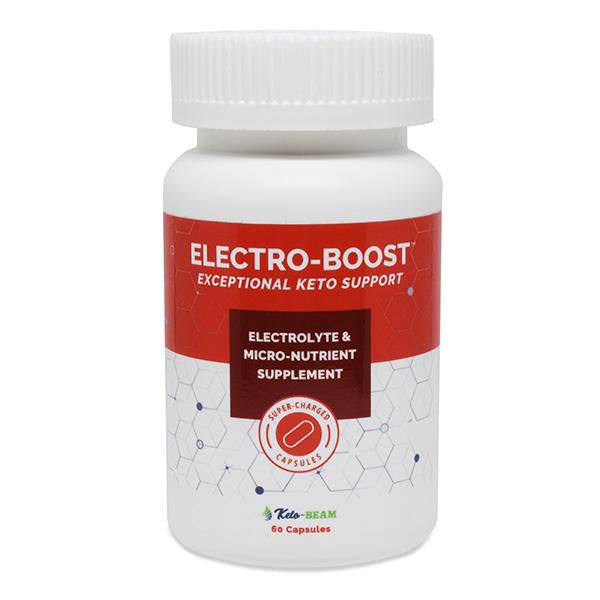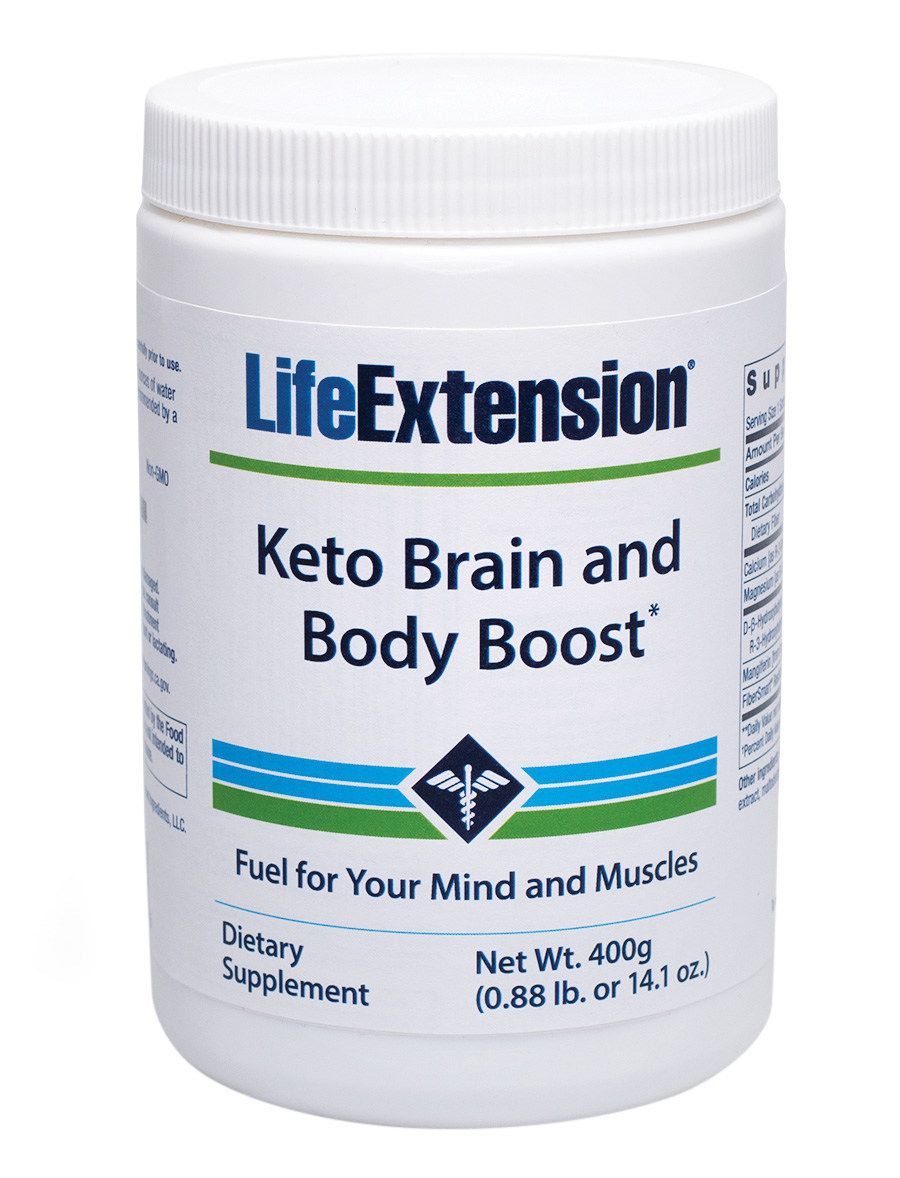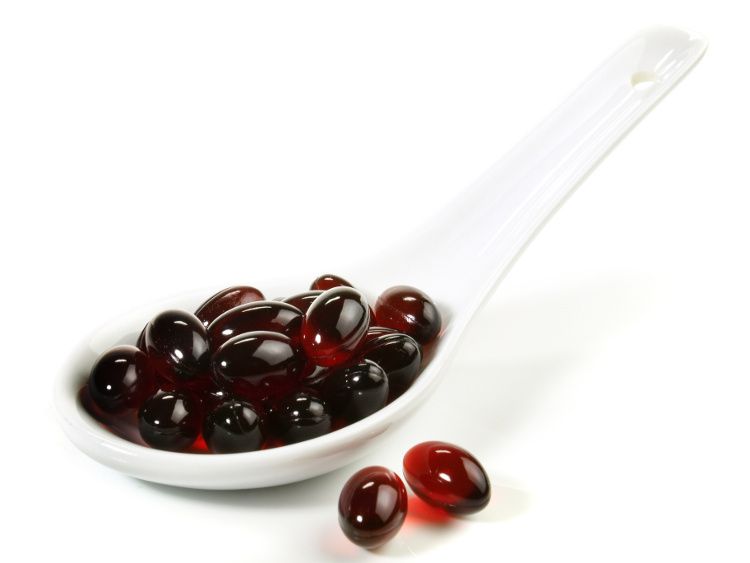PLT Health launches water soluble Boswellia ingredient for sports nutrition market
PLT Health Solutions Inc., in partnership with Laila Nutraceuticals, is launching a new joint health and muscle recovery ingredient marketed to the active and sports nutrition market, called Dynaleve Muscle+Joint Formula.

PLT Health Solutions Inc. (Morristown, NJ), in partnership with Laila Nutraceuticals, is launching a new joint health and muscle recovery ingredient marketed to the active and sports nutrition market, called Dynaleve Muscle+Joint Formula. The ingredient contains a low dose of Boswellia serrata, delivered in a neutral-tasting, water soluble form.
In an unpublished clinical study, Dynaleve was evaluated using the Delayed Onset Muscle Soreness model. In the trial, 50 recreationally active men were given either 60 mg of Dynaleve or placebo for 10 day, with eccentric exercise intervention at day 7. Results showed that, compared to placebo, daily supplementation with the ingredient reduced muscle soreness by 47%, and knee soreness by 31%. Full recovery of strength was achieved by 96% of subjects in the Dynaleve group on day 3, 2.5 times more than subjects in the placebo group. Subjects taking Dynaleve also saw improvements in biomarkers related to inflammation, muscle damage, and connective tissues damage.
“Dynaleve is such a novel and powerful ingredient in that it that supports both muscle and joint comfort. The new study points to an ingredient that can change the landscape of the active and sports nutrition market by offering a comprehensive, low dose solution to post-exercise recovery, while promoting the ability to perform at a higher level with less recovery time,” said Seth Flowerman, president and CEO of PLT Health Solutions, in a press release. “At the same time, this study highlights the potential for Dynaleve to help people feel better faster in their day to day lives – things like climbing stairs or walking with less stiffness can be made easier.”
“Dynaleve was specifically developed as a low-dose, neutral-tasting, and soluble solution for ease of incorporation into a broad range of applications and delivery systems,” added Flowerman. “This solution represents a significant invention in its own right as it overcomes the traditional challenges of incorporating Boswellia serrata into organoleptically sensitive and water-soluble formulations.”
OptiBiotix launches WellBiome for digestive, cardiovascular, metabolic health
UK-based OptiBiotix Health PLC launched WellBiome, a functional fiber and mineral blend, containing fructooligosaccharides, glucomanan, and chromium.

UK-based OptiBiotix Health PLC launched WellBiome, a functional fiber and mineral blend, containing fructooligosaccharides, glucomanan, and chromium, formulated to support the growth of beneficial bacteria and improve overall wellbeing. It was developed by UK universities and key opinion leaders on the gut microbiome and functional food ingredients, and it is gluten- and lactose-free.
“We are pleased to unveil our new revolutionary ingredient that joins the OptiBiotix ingredients portfolio,” said Frederic Narbel, DBA, managing director of functional fibers at OptiBiotix, in a press release. “As consumer awareness of the gut microbiome increases, products that contain functional fibers that support health and wellbeing are becoming increasingly popular. With the microbiome modulating WellBiome, our partners can now extend their reach into the exciting health and wellbeing market with a science-backed offering.”
WellBiome’s patented formulation has shown its efficacy in controlled human studies. The prebiotic helps to maintain a healthy digestive system and supports regular bowel habits by significantly increasing essential bacteria, including the Bifidobacterium, Bacteroides, and Christensenella strains due to its high soluble fiber content (94%). In addition, scientific studies have demonstrated WellBiome can regulate glycemic response to support metabolic health and significantly reduce systolic blood pressure. It also supports several European Food Safety Authority (EFSA) health claims, including the use of chromium which contributes to the maintenance of normal blood glucose levels and glucomannan, which reduces blood cholesterol.
“The Health and Wellness industry is estimated to be worth $4.2 trillion in 2019, with the digestive health segment accounting for $60 billion,” said Narbel. “For OptiBiotix, the development of WellBiome is a direct response to the trends that are dominating the industry today. As a leading life sciences company that excels in delivering science-backed ingredients, we are helping to combat the health challenges of today, tomorrow and the near future. WellBiome is a major part of this journey and will help play a key role in the livelihoods of consumers by improving digestive, heart and metabolic health.”
Blueberries may support muscle growth, repair in women, says recent study
A new research study funded by the U.S. Highbush Blueberry Council investigated how subjects consuming a diet enriched with blueberries affects the cells responsible for muscle growth and repair.

A new research study funded by the U.S. Highbush Blueberry Council (USHBC; Folsom, CA) and published in the Journal of Nutrition investigated how subjects consuming a diet enriched with blueberries affects the cells responsible for muscle growth and repair—human muscle progenitor cell (hMPC).
The six-week study included 22 women, 12 aged 25-40 and 10 aged 60-75. Participants consumed the equivalent of 1.75 cups of fresh blueberries/day, given as freeze-dried blueberries along with their regular diet. They were also asked to avoid other foods rich in polyphenols and anthocyanins.
After six weeks, the results showed the blueberry-enriched serum obtained from the women aged 25-40 increased human muscle progenitor cell numbers in culture. There was also a trend toward a lower percentage of dead human muscle progenitor cells, suggesting resistance to oxidative stress, as well as increased oxygen consumption of the cells. There were no beneficial effects seen in the muscle progenitor cells treated with serum from participants aged 60-75.
“The consequences associated with the deterioration of skeletal muscle are a loss of mobility, decreased quality of life, and ultimately, loss of independence,” said Anna Thalacker-Mercer, PhD, the study’s lead investigator, in a press release. “Currently, research on dietary interventions to support skeletal muscle regeneration in humans is limited. This preliminary study of muscle progenitor cell function paves the way for future studies to develop clinical interventions. While the results cannot be generalized to all populations, this study is an important step in translating findings from cell culture and rodent studies to a potential dietary therapy for improving muscle regeneration after injury and during the aging process.”
USHBC had no role in study design, data collection, data analysis, data interpretation, or writing of the study.
Reference
- Blum JE et al. “Consumption of a Blueberry-Enriched Diet by Women for 6 Weeks Alters Determinants of Human Muscle Progenitor Cell Function” Journal of Nutrition, Published online ahead of print on July 17, 2020
Ketogenic product trends in 2020
How are keto manufacturers keeping the category fresh for keto followers?

The popularity of the ketogenic diet continues to grow as more consumers learn of it. Market research from The Insight Partners predicts that the keto market will see a 5.5% CAGR through 2027, with snacks and beverages leading the ketogenic products category.1
While the rise of keto-friendly to-go products may have contributed to the myth that keto is just a fad, according to Keto Primo (Temecula, CA) co-founders Diana Alanis and Emily Adams, the keto trend is only growing. Over the last two years, a number of creative keto products have hit the market that are making keto simpler for consumers. Here are some of the most innovative product trends in keto today.
Keto Enters the Convenience & Condiments Markets
Several brands are introducing functional foods that help to promote ketosis or that adhere to the requirements of the ketogenic diet, and many of these functional foods are in the form of convenience products and condiments. Alanis and Adams said in a joint statement that busy American families are looking for healthy meal prep solutions that don’t require a significant time investment.

“Preparing food should be simple. Nearly every American restaurant has a bottle of ketchup on the table, and nearly every children’s menu has chicken nuggets with BBQ sauce for dipping. So instead of serving our families a side of corn syrup with every meal, [ketogenic condiments] provide comparable taste while also containing healthy ingredients.”
Condiments, they say, are also an ideal vertical for keto products because products like barbecue sauce are a fast and easy way to add flavor to meats and vegetables. Keto Primo aims to make the ketogenic diet more accessible and more convenient. To that end, Keto Primo is also working to educate consumers on the keto lifestyle through their recently launched Keto Revolution podcast.
Ketogenic Supplements Fight the Keto Flu
There are several reasons why keto dieters take keto supplements, and brands are diversifying both product formats and product claims in an effort to appeal to a broader segment of the keto market. Terms like keto flu are becoming increasingly common in marketing claims for keto supplements. Caroline Alan, co-founder of electrolyte supplement brand Keto-BEAM (Portland, OR), says that brands are changing both their marketing language and their product formats where ketogenic supplements are concerned.

“The term keto flu speaks to the experience of people who adhere to the keto way of life,” Alan says. “Many keto flu symptoms are actually a result of micronutrient depletion, not electrolyte depletion. Liquid supplements are trending up because they have high bioavailability. Pills are trending down because they have very low bioavailability—only about 10% to 12%.”
Consumers Prefer Powdered Exogenous Ketones
Vanessa Pavey, Education Scientist at Life Extension (Fort Lauderdale, FL), says that exogenous ketones commonly come in a powdered format because powder is the preferred delivery method of athletes and biohackers. Beta-hydroxybutyrate, in particular, for instance, commonly comes powdered.
“Ketones are an efficient energy source for highly metabolic tissue like the brain and the muscles,” Pavey says. “For long-distance cyclists and marathon runners, who need sustained energy during a workout, a powder is easy to mix into a water bottle and sip throughout the session.”

Pavey says that she expects powdered keto supplements to incorporate more functional ingredients as they evolve. For instance, she cites the theoretical example of an exogenous ketone supplement that helps keto dieters maintain the ideal fat-to-carbohydrate ratio.
“It is very likely that future research will continue to show the brain and body benefits of using ketones for energy. Powder-based supplements that provide endogenous ketones combined with nutrients that assist endogenous ketone production will perform well in the keto product category. Mango extract and resistant starch, for instance, provide such benefits.”
Keto Products Ready for Mainstream
The growing diversification of the keto products market indicates that mainstream consumers are increasingly accepting of the keto diet and lifestyle. Google Trends data indicates that in the United States, search traffic for the term keto has grown by 850% over the last four years.2 As consumers continue to become more health conscious and look for ways to cut back on sugar and carbs, keto will only grow, and there will be more opportunities for innovative and creative keto products. Brands that can come up with creative keto-friendly alternatives to consumers’ existing preferred foods will be well positioned for the future growth of the keto market.
References
- The Insight Partners. “Ketogenic Diet Market to 2027 – Global Analysis and Forecasts by Product Type (Supplements, Beverages, Snacks, Dairy, and Others); Distribution Channel (Hypermarket & Supermarket, Specialty Stores, Convenience Stores, and Others); and Geography.” Published online July 2019. Accessed at: https://www.theinsightpartners.com/reports/ketogenic-diet-food-market
- Cassity J. “The Keto Market: New Statistics on Market Size, Value and Keto Product Growth.” Kerry Digest (Kerry website). Published online January 27, 2020. Accessed at: https://www.kerry.com/insights/kerrydigest/2020/keto-market
 Download Issue : Nutritional Outlook Vol. 23 No. 6
Download Issue : Nutritional Outlook Vol. 23 No. 6Arla Foods launches organic micellar casein isolate protein ingredient, MicelPure Organic
Arla Foods Ingredients launched MicelPure Organic, an organic micellar casein isolate with a minimum of 87% native protein.

Arla Foods Ingredients (Basking Ridge, NJ) launched MicelPure Organic, an organic micellar casein isolate with a minimum of 87% native protein and extracted from milk using gentle processing without the addition of acids. It is suitable for functional health foods and active-nutrition applications, low in lactose and fat, heat-stable, and neutral tasting.
“When consumers hear organic, they think healthy, sustainable, and wholesome,” said Barbara Jensen, business development manager at Arla Foods Ingredients, in a press release. “However, a shortage of natural, organic protein ingredients has prevented many manufacturers from entering this market. MicelPure Organic fills the gap, allowing companies to extend their portfolios with products that are both organic and packed with high-quality protein.”
Joe Katterfield, business development manager for sports nutrition and health foods at Arla Foods Ingredients, said in a press release, “Protein’s benefits for muscle growth, recovery, and weight management have driven consumer demand in a range of categories. But while the high-protein trend is definitely here to stay, manufacturers also have to meet many other needs. MicelPure combines high protein levels and functionality with an offer of healthy wholesomeness that increases appeal.”
MicelPure Organic can be used in a number of food applications cooking-stable cheeses, yogurt, ice cream, pudding, as well as health and performance applications such as ready-to-drink high-protein beverages and powder shakes.
Australia, New Zealand publish digestive claims for GanedenBC30
GanedenBC30, a branded probiotic used in multiple food and beverage categories, was approved in Australian and New Zealand for a range of digestive-health claims supported by a wealth of scientific evidence.

GanedenBC30, a branded probiotic used in multiple food and beverage categories, was approved in Australian and New Zealand for a range of digestive-health claims supported by a wealth of scientific evidence.
The FSANZ (Food Standards Australia New Zealand) Food Standards code sets out the requirements for making a general-level health claim. Companies that want to make a claim can go through a systematic review of evidence of a causal food-health relationship. With 25 published papers supporting the efficacy of GanedenBC30’s benefits for digestive health, the ingredient’s manufacturers, Kerry (Beloit, WI), was able to conduct a comprehensive review in line with the ANZ Food Standards code.
The claims include “aids digestive health”, “supports digestive health”, and “boosts digestive health”. In addition to the volume of evidence supporting its benefits, as a spore-forming probiotic, GanedenBC30 remains viable through shelf life and the low pH of stomach acid, as well as processing conditions like heat, shear, and HPP pasteurization.
“As in the rest of the world, demand for probiotic products in Australia has soared in recent years,” said John Quilter, vice president and general manager for GanedenBC30, in a press release. “The door is now open for manufacturers to use messaging highlighting the many benefits of GanedenBC30. In addition to being backed by a wealth of scientific evidence, it’s a highly resilient probiotic strain, opening up opportunities for innovation in a range of food and beverage categories.”
“Consumers are increasingly skeptical and rightly asking questions about the effectiveness of functional ingredients such as probiotics,” Quilter said. “The best way to respond is by clearly communicating benefits and the research supporting them. Scientific substantiation helps manufacturers and consumers alike understand the value of ingredients and choose products that can really support health.”
AHPA supports USDA’s proposal to allow pullulan in products labeled organic
AHPA supports the addition of pullulan to the National List at 7 CFR § 205.605 as a nonagricultural (nonorganic) ingredient that can be used only in tablets and capsules for dietary supplements labeled, “Made with organic (specified ingredients or food group(s)).”

The American Herbal Products Association (AHPA; Washington, D.C.) sent a letter to the U.S. Department of Agriculture's (USDA's) Agricultural Marketing Service (AMS) to support adding pullulan to the National List at 7 CFR § 205.605 as a nonagricultural (nonorganic) ingredient that can be used only in tablets and capsules for dietary supplements labeled, “Made with organic (specified ingredients or food group(s)).” AHPA membership includes numerous companies that grow herbal crops or market herbal products certified as organic under USDA’s National Organic Program (NOP), including capsuled dietary supplements that include pullulan as an ingredient.
On June 8, 2020, USDA’s AMS issued a proposed rule to amend the National List of Allowed and Prohibited Substances within USDA’s organic regulations by adding several substances to implement recommendations submitted to the Secretary of Agriculture by the National Organic Standards Board (NOSB), which included the proposal to add pullulan. AHPA explains in its comments that pullulan has a history of use in encapsulated supplement products classified as organic by the NOP because pullulan was previously classified as agricultural. This was until December of 2016, when pullulan was classified as a nonagricultural substance.
Pullulan’s inclusion to the National List would maintain the status quo by allowing dietary supplements in tablets and capsules that include pullulan to continue to be labeled, “Made with organic (specified ingredients or food group(s)).” Pullulan is currently a key ingredient in non-animal-sourced capsules, as a vegetarian alternative to gelatin.
“The addition of pullulan to the National List at 7 CFR § 205.605 will ensure that the option of vegetarian herbal supplement capsules continues to be available, thus supporting both the farmers who grow organic herbs and the consumers who choose to include supplements in this form in their personal health care choices,” said AHPA in its letter.
AHPA also expressed support for comments submitted by the Organic Trade Association (OTA), which go into greater detail on the issue of adding pullulan to the National List.
Poverty associated with inadequate intakes of calcium and vitamin D, says recent study
A recent study conducted by Pharmavite LLC shows that older adults living below the poverty line have inadequate intakes of calcium and vitamin D, putting them at greater risk of osteoporosis.

A recent study1 conducted by Pharmavite LLC (West Hills, CA) shows that older adults living below the poverty line have inadequate intakes of calcium and vitamin D, putting them at greater risk of osteoporosis. Researchers performed a cross-sectional analysis of United States population using National Health and Nutrition Examination Survey (NHANES) data from 2007–2010 and 2013–2014 for older US adults (n = 3,901 participants, 50 years old and older).
According to the study, based on current U.S. population estimates, 14 million Americans age 50 and older are expected to have suffered from probable osteoporosis in 2019, representing about 10% of the total Americans in this age group. Within this group, women are more likely to be affected (16.2%) compared to men (4.6%). Looking at these figures from a nutrient intake perspective, the researchers estimate that 60% of the cohort have inadequate calcium intakes (72.4% of females; 51.4% of males) and 36.7% (24.1% of females; 39.7% of males) of this cohort have inadequate vitamin D intake. Of Americans over the age of 50 and older, it’s estimated that only 30% supplement with calcium and vitamin D.
Among Americans ages 50 and older, an estimate 23% belong to households with an annual income below $20,000. Researchers determined that 68% (74.3% of females; 58.9% of males) of this income bracket have inadequate calcium intake level, and 43% (39.4% of females; 46.7% of males) have inadequate vitamin D intake. Household income is also strongly associated with relative risk of osteoporosis. Adults 50 years of age or older belonging to a household with a household income less than $20,000 have a 60% relative risk of osteoporosis, compared to high income brackets. When considering the combined effect of household income and nutrient intake, researchers determined that the relative risk of osteoporosis was greater by 45% for those with inadequate intakes of calcium, by 41.1% for those with inadequate intakes of vitamin D.
When analyzing this data by ethnicity, the effect of poverty levels on risk of osteoporosis had the greatest impact on Mexican Americans, specifically females, and non-Hispanic whites of both genders. In addition, non-Hispanic black men with lower incomes are twice as likely to develop osteoporosis compared to higher income counterparts, despite a lower risk of osteoporosis among non-Hispanic black people overall. While food insecurity does play a significant role on inadequate intakes of calcium and vitamin D, it does not appear to play a large role in relative risk of osteoporosis unless ethnicity is taken into consideration. Non-Hispanic whites reporting food insecurity have a 68.1% greater relative risk of osteoporosis compared to food secure counterparts, and food-insecure Mexican Americans have a 26% greater relative risk of osteoporosis.
“This study continues to demonstrate how prevalent nutrient deficiency is among the U.S. population, and even more so, among lower income individuals and those with food insecurities,” said Susan Hazels Mitmesser, PhD, vice president of science and technology at Pharmavite, in a press release. “Improving the consumption of nutrient-rich and fortified foods among individuals that live in poverty can help to decrease their chances of developing osteoporosis. Additionally, dietary supplements can play a critical role in helping any underserved population meet their nutrition needs —including making supplements readily available through programs like SNAP, for example. Our research demonstrates that participants with SNAP benefits and more access to food, have fewer nutrient inadequacies which helps them meet their nutrition needs.”
Reference
- Marshall K et al. “Inadequate calcium and vitamin D intake and osteoporosis risk in older Americans living in poverty with food insecurities.” Plos One, Published online ahead of print on July 8, 2020
Stratum Nutrition to distribute NatAxtin branded astaxanthin in North America
Stratum Nutrition has entered into a distribution agreement with Atacama Bio Natural Products for its NatAxtin branded astaxanthin.

Stratum Nutrition, a business of ESM Technologies (Carthage, MO), entered into a value-added distribution agreement for NatAxtin brand astaxanthin, manufactured by Atacama Bio Natural Products (Iquique, Chile).
"We are really excited to launch NatAxtin branded astaxanthin in North America and could not ask for a better partner than Stratum Nutrition to accomplish this,” said Jose Luis Arenas, founder and CEO of Atacama Bio, in a press release.
NatAxtin is a competitively priced astaxanthin that combines the benefits of an optimal microbial source and ideal production conditions, resulting in an ingredient that meets or exceeds the high standards demanded by conscientious dietary supplement manufacturers.
"Stratum is well on a path to leadership in supplying all-natural and proven-effective dietary solutions,” said Micah Osborne, President of Stratum Nutrition, in a press release. “Bringing NatAxtin brand astaxanthin into Stratum's highly selective portfolio fully complements the range of unique plant, animal, and probiotic ingredients we produce and distribute."
Pharmavite’s new Caring by Nature initiative supports nurse practitioners’ health as they deal with COVID-19 work stress
Pharmavite's Caring by Nature program has evolved into a program that offers numerous channels to help nurse practitioners bolster their health and wellness during the pandemic.

Nutrition industry professionals are taking stock of how they can help their communities during the COVID-19 pandemic. Many other industries have found ways to assist others in this difficult time. Makers and sellers of dietary supplements have long had a mission, through their products, to help consumers fill nutrient gaps and stay well. It’s a role that remains critical at a time when staying healthy is of utmost concern.
We have seen industry companies find numerous ways to support their communities in recent months. Some have produced and donated hand sanitizer, such as Best Formulations, Califormulations, and Symrise did. Others, such as Jiaherb Inc., have donated personal protective equipment to those on the front lines. Still others have donated significant funds to help their communities who are in need of a wide range of relief, such as the nonprofit Dr. Majeed Foundation recently did in India, or Kyowa Hakko USA recently did in New York. These are just a few examples of how supplement companies have found ways to help.
Recently, the Pharmavite corporation announced a new initiative called Caring by Nature, which specifically focuses on helping nurse practitioners better care for themselves as they battle on the pandemic front line. In early March, even before nationwide lockdowns started, the company surveyed 350 nurse practitioners in the U.S. to determine how these workers were managing their own wellbeing.
“The original intent of the survey was to better understand what nurse practitioners prioritize in their health routines and what factors dictate their behaviors,” explains Alan McNamara, Pharmavite’s divisional vice president of corporate communications. “Once we conducted our survey, COVID-19 quickly came to the forefront and it was apparent we needed to lend our support beyond sharing the insights we gathered.”
The Caring by Nature program has evolved into a program that offers numerous channels to help nurse practitioners bolster their health and wellness during the pandemic. These include educational resources and interactive options such as virtual yoga classes led by professional instructors as well as free care packages containing products from Pharmavite’s Nature Made brand. These are “products designed to help support relaxation and stress-reduction,” McNamara says. Nurse practitioners can register via the following link to participate in the Caring by Nature program for free: http://www.jaanpresourcecenter.com/specialty/pharmavitenatmade.html.html.html.
Pharmavite also harnessed the partnership of the American Association of Nurse Practitioners to help drive the initiative’s exposure and extend its reach. “Similarly, we have partnered with select nurse practitioner social influencers to speak to the survey results as well as the yoga classes and care package offerings,” McNamara says.
Nurse practitioners are a group that needs this kind of support, especially in the high-stress and hazardous environment they now face due to COVID-19. One finding from Pharmavite’s survey is that nurse practitioners generally prioritize their health and wellness behind the needs of others.
“Our survey was fielded in early March at the start of the global pandemic. It’s no secret that healthcare professionals like nurse practitioners have always worked tirelessly for the greater good of their patients, but the results were eye-opening,” McNamara says. “Our survey found that nearly half (44%) of nurse practitioners reported being ‘too tired’ as the top reason preventing them from taking better care of themselves and their health.” In fact, 54% of respondents said that work commitments prevent them from taking better care of their health.
McNamara says this spurred the company to find a tangible way to support this group of healthcare workers. “Our key takeaway that nurse practitioners generally put the care and wellbeing of others above their own needs really struck a chord given the toll the pandemic was taking on both frontline healthcare workers and the healthcare system itself,” he says. “Rather than just raise awareness around this issue, we wanted to do something that might help them through this difficult time.”
One finding of the survey was that even as nurse practitioners push other personal health priorities to the side, one thing they do prioritize is the use of dietary supplements. The survey found 77% of respondents reporting routinely taking a vitamin and/or a dietary supplement daily, primarily citing immune system support and filling nutrient gaps as the main reasons. Says McNamara, “[D]espite their busy schedules, the majority of nurse practitioners reported that regularly takin vitamins or supplements is the last healthy habit to fall by the wayside, in comparison to other habits such as eating healthy or exercising. When you layer in the impact COVID-19 has had on our healthcare system, these findings are likely amplified.”
McNamara says Pharmavite is also “definitely open to expanding the reach of this program to other healthcare workers. Any future iterations of this program would be tailored to providing resources and supporting the needs of that specific group of healthcare workers.”
He adds: “Pharmavite has been a longtime supporter of the healthcare professional community by investing in education on nutrients for this vital group of individuals who are trusted sources of information for their patients.” By spreading the word and encouraging the use of dietary supplements, companies like Pharmavite are demonstrating to healthcare providers as well as the people those providers influence about how supplements can play a beneficial role in this difficult time. While supplements cannot in any way prevent, treat, or cure COVID-19, they can help consumers take care of their themselves at a time when everyone is worried about their health.
 Download Issue : Nutritional Outlook Vol. 23 No. 6
Download Issue : Nutritional Outlook Vol. 23 No. 6https://www.nutritionaloutlook.com/view/pharmavite-s-new-caring-by-nature-initiative-supports-nurse-practitioners-health-as-they-deal

No comments:
Post a Comment